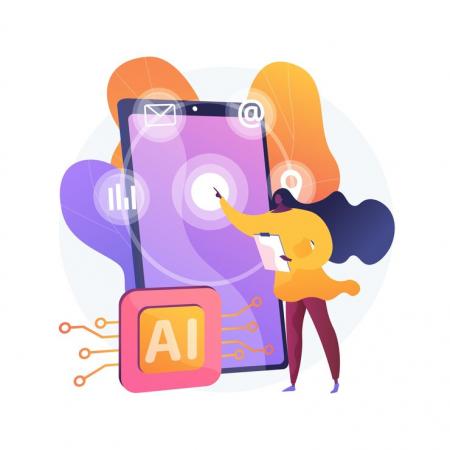Want to explore PNG images and want to do more with it? Well, it's time to level up! To convert png to AI vector format is like giving your image superpowers.
It'll look great on any screen, big or small, and you can edit it to your heart's content.
Understanding PNG and AI
- PNG: A raster image format composed of pixels, offering good quality but limited scalability.
- AI: A vector-based format created by Adobe Illustrator, defined by mathematical equations, ensuring infinite scalability and precise editing.
PNG vs. AI: A Comparison
|
Feature |
PNG |
AI |
|
Type |
Raster |
Vector |
|
Composition |
Pixels |
Mathematical paths |
|
Scalability |
Limited (becomes pixelated when enlarged) |
Infinitely scalable |
|
Editing |
Difficult to edit without losing quality |
Easy to edit and manipulate |
|
Transparency |
Supports transparent backgrounds |
Supports transparent backgrounds |
|
Ideal Use Cases |
Web graphics, simple images |
Logos, icons, complex graphics |
Why Convert to AI?
- Scalability: AI files can be resized without losing quality, making them ideal for large-format prints, logos, and icons.
- Editability: Easily manipulate colors, shapes, and sizes within Adobe Illustrator without compromising image integrity.
- Compatibility: AI files are widely used in design workflows and professional printing applications.
Alternative Conversion Tools
If you don’t have access to Adobe Illustrator, several online and desktop tools can help with the conversion:
Online Converters
Website: Convertio offers quick and convenient conversion without the need to install software.
Simply upload your file, convert it, and download the result.
Desktop Software:
For batch conversions or offline work, software: Vector Magic provides robust tools including AI.
Additional Conversion Needs:
Knowing how to switch between different file formats can be really helpful for design work:
PNG to PES: If you do embroidery design, converting PNG files to PES format is crucial for making embroidery patterns.
PNG to Embroidery File: Like PES, other embroidery formats may need conversion from PNG for use in embroidery machines.
Convert Logo to Vector Format: Turning logos from PNG keeps them clear and scalable for various uses.
Convert Image to Vector Illustrator: For raster images needing vectorization, converting them to AI format lets you do advanced editing and scaling.
Convert AI to PNG: Sometimes you might need to change an AI file back to PNG for web use or sharing. This is usually easy with available tools.
Best Practices for Conversion
- High-Quality PNG: Start with a high-resolution PNG for optimal results.
- Simplify Complex Images: Remove unnecessary details or simplify shapes before conversion for better vectorization.
- Image Trace Settings: Experiment with different Image Trace settings in Illustrator to achieve the desired level of detail and accuracy.
- Manual Adjustments: If necessary, manually adjust the vector paths created by Image Trace to refine the design.
- Regular Saving: Save your project frequently during the conversion process to avoid losing progress.
Additional Considerations
- Embroidery Design: For embroidery projects, convert PNG to PES format after converting to AI.
- Logo Conversion: Convert logos to AI for scalable and versatile usage in various applications.
- File Format Conversions: Explore other conversions like AI to PNG or between different embroidery file formats.
Conclusion
Converting file format is a valuable skill for designers working with graphics that require scalability, editability, and compatibility with professional workflows.
By following the steps outlined in this guide and considering best practices, you can effectively transform your PNG images into high-quality AI vectors, unlocking a world of design possibilities.
FAQs
- Can PNG be used in AI?
When submitting generative AI assets, you can use either JPEG or PNG formats. It's no different from submitting other types of assets. However, if you choose PNG, make sure the background is transparent.
- How to vectorize an image?
Open your image in Illustrator. Once it's selected, go to 'Object' > 'Image Trace' and click 'Make' to automatically trace it. Or, you can use the Image Trace button in the toolbar or choose a preset from the options.











Comments (0)